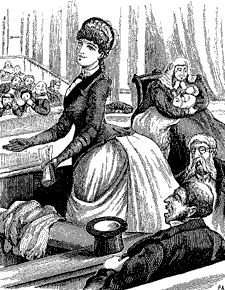 |
| Image: Coen (Wikimedia Commons) |
Showing posts with label indigenous Australians. Show all posts
Showing posts with label indigenous Australians. Show all posts
November 29, 2013
Extending income management in Cape York
March 19, 2013
National Close the Gap Day
 |
| Image source: Council of Australian Governments |
September 5, 2012
Indigenous Expenditure Report 2012
 |
| Image source:2012 Indigenous Expenditure Report |
June 15, 2012
Hearing impairment—the silent barrier to Closing the Gap
 |
| Image source: Northern Territory Government |
June 12, 2012
110th anniversary of the Commonwealth Franchise Act 1902
 |
| Image source: Wikimedia Commons |
May 24, 2012
Celebrating the 50th anniversary of Indigenous federal voting rights
 |
| Source: http://www.indigenous.gov.au/ |
In March 1962 the Commonwealth Electoral Act 1918 was amended to enable Indigenous people to enrol to vote in federal elections, but it was not compulsory for them to enrol. It was made an offence for anyone to use undue influence or pressure to induce them to enrol. Once they enrolled, however, voting was compulsory.
January 19, 2012
Aboriginal Tent Embassy: 40th Anniversary 2012
Australia Day 2012 marks the 40th anniversary of the Aboriginal Tent Embassy on the lawns of Old Parliament House, Canberra.
On 26 January 1972 four young Aboriginal men: Michael Anderson, Billy Craigie, Bertie Williams and Tony Coorey set up a protest under a beach umbrella on the lawns of Parliament House. In a sad reflection on Indigenous life expectancy Michael Anderson is the only living member of the four founders. Michael Anderson believes the anniversary and Sovereignty Corroboree will be 'a great day of Aboriginal unity’.
 |
| Image: The Koori History Website |
On 26 January 1972 four young Aboriginal men: Michael Anderson, Billy Craigie, Bertie Williams and Tony Coorey set up a protest under a beach umbrella on the lawns of Parliament House. In a sad reflection on Indigenous life expectancy Michael Anderson is the only living member of the four founders. Michael Anderson believes the anniversary and Sovereignty Corroboree will be 'a great day of Aboriginal unity’.
July 4, 2011
What's the future for income management in the Northern Territory?
In her foreword to the Government’s recent discussion paper on the future of the Northern Territory Emergency Response (NTER), the Minister for Indigenous Affairs, Jenny Macklin, argued that lack of consultation had caused ‘ongoing anger, fear and distrust among indigenous people’ and that the next stage of the NTER would need to be based on ‘partnership with Aboriginal people’. To this end, the Government plans to consult with Aboriginal people over coming months about ‘what has worked well and where improvements can be made’.
Interestingly, the paper does not include income management as one of its ‘eight areas for future action’. Indeed, the paper argues that ‘as income management applies in other areas of Australia it is no longer part of the [NTER]’.
Interestingly, the paper does not include income management as one of its ‘eight areas for future action’. Indeed, the paper argues that ‘as income management applies in other areas of Australia it is no longer part of the [NTER]’.
November 23, 2010
Constitutional recognition of Indigenous people
During the course of the election campaign both major parties made announcements about constitutional recognition of Indigenous people. The Coalition promised to hold a referendum at the 2013 election on the wording of a preamble in the Constitution to recognise Indigenous Australians, and the ALP promised to set up an expert panel to build support for the constitutional recognition of Indigenous people.
August 6, 2010
Indigenous Members of Parliament
 The contest for the Western Australia seat of Hasluck is unusual in that three of the seven candidates are Aboriginal Australians: Dot Henry (Independent), Glenice Smith (Greens) and Ken Wyatt (Liberal).
The contest for the Western Australia seat of Hasluck is unusual in that three of the seven candidates are Aboriginal Australians: Dot Henry (Independent), Glenice Smith (Greens) and Ken Wyatt (Liberal).The Liberal candidate Ken Wyatt (pictured opposite) needs a swing of 1 per cent to win the seat from Labor member Sharryn Jackson and become the first Indigenous Member of the House of Representatives.
Subscribe to:
Posts (Atom)
